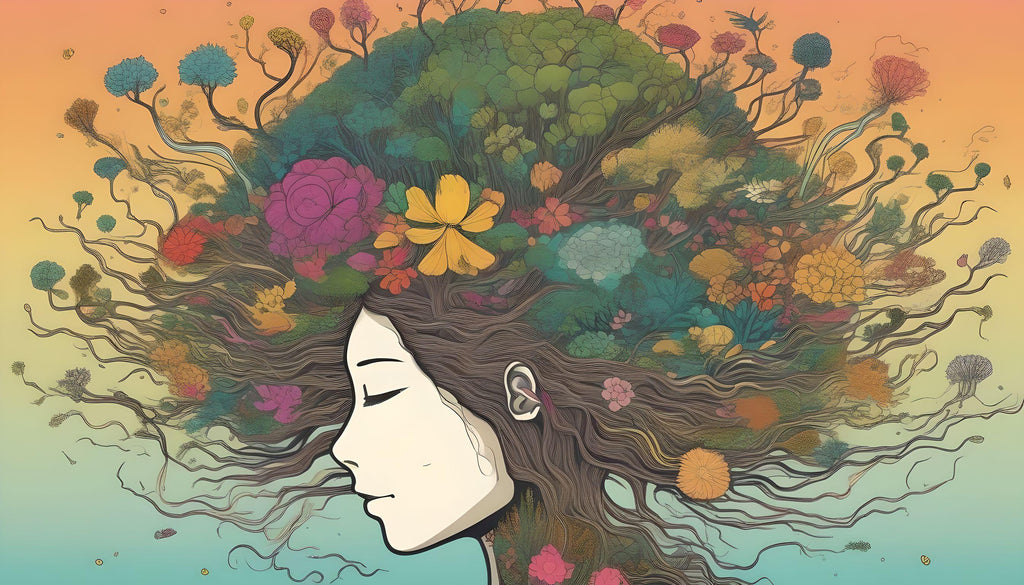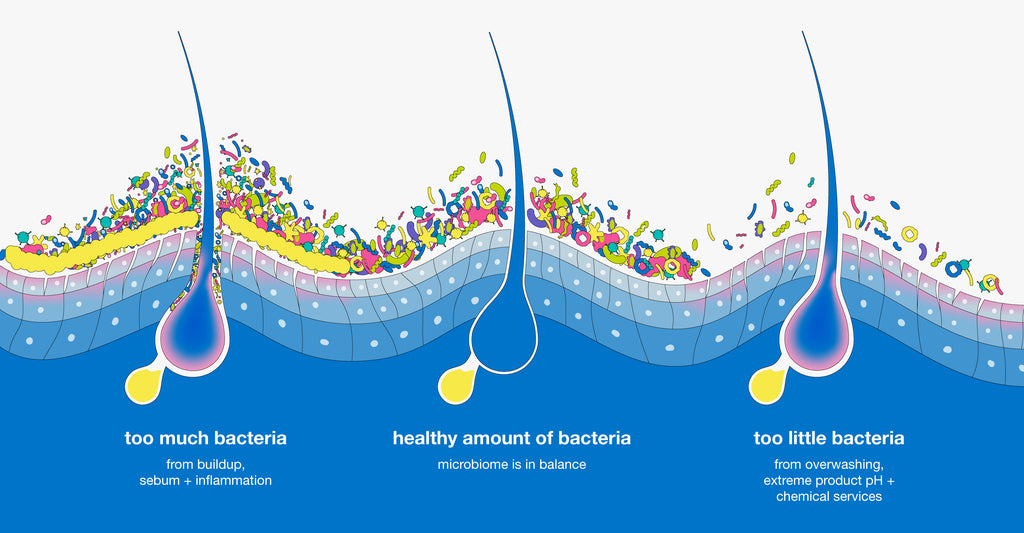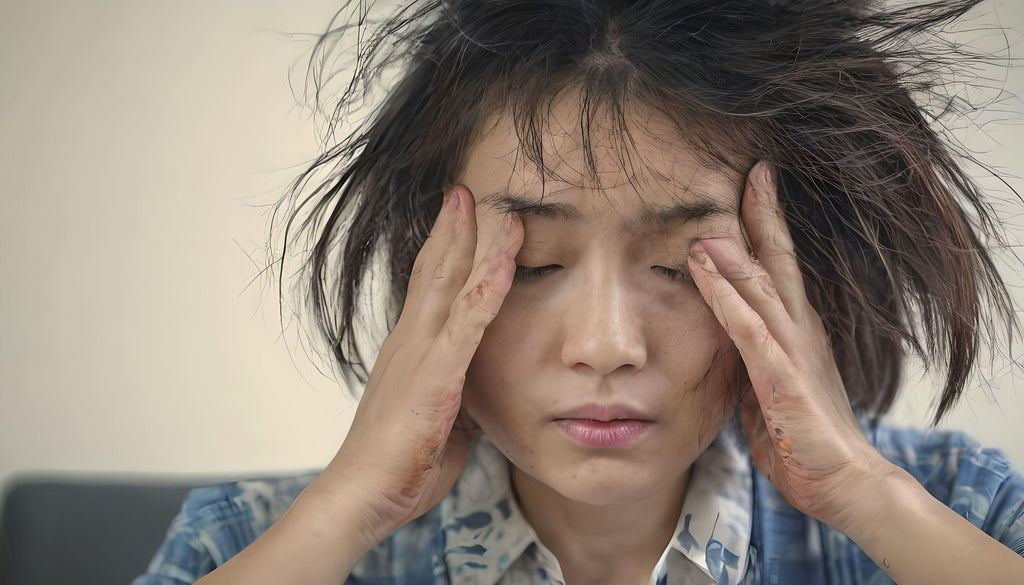
The Scalp—the often overlooked yet incredibly fascinating part of our bodies that plays a vital role in our hair health and overall well-being. While we spend countless hours fussing over our hair, how much do we really know about the mysterious world beneath it? Get ready to embark on a hair-raising journey as we uncover some strange things you might not know about your scalp.
The Scalp Is More Than Just Skin:
You might think of your scalp as just another patch of skin, but it's actually much more complex than that! Beneath the surface lies a network of blood vessels, nerves, and hair follicles, all working together to nourish and protect your hair. In fact, your scalp contains thousands of hair follicles, each capable of producing a hair strand that grows at a rate of about half an inch per month. Talk about a bustling hub of activity!
Your Scalp Is Home to Millions of Microorganisms:
Picture this: a bustling metropolis teeming with life, hidden beneath the surface of your scalp. Yes, that's right—your scalp is a thriving ecosystem inhabited by millions of bacteria, fungi, and other microorganisms. While this may sound like the start of a horror movie, fear not—most of these microorganisms are harmless and even play a vital role in maintaining scalp health.

Your Scalp Can Produce Over 100,000 Hairs in a Lifetime:
Talk about a hair-raising statistic! Over the course of a lifetime, your scalp is capable of producing an astonishing 100,000 hairs or more. That's enough hair to fill a swimming pool—twice! From baby-fine strands to luscious locks, each hair has its own unique journey, growing, shedding, and regenerating in a continuous cycle of renewal.
Your Scalp Can Sweat Up to 1 Liter of Sweat Per Day:
Sweat—it's not just for armpits anymore! Your scalp is equipped with its own set of sweat glands, capable of producing up to 1 liter of sweat per day. That's enough sweat to fill a small water bottle! While sweating may not be the most glamorous aspect of scalp health, it plays a crucial role in regulating body temperature and keeping your scalp hydrated.
Your Scalp Can Get Sunburned:
Think your scalp is safe from the sun's harmful rays? Think again! Just like the rest of your skin, your scalp is susceptible to sunburn, especially in areas where the hair is thin or sparse. Protect your scalp from sun damage by wearing a hat or using hair care products such as Oribe Invisible Defense Universal Protection Spray or Shiseido Professional Sublimic Wonder Shield that helps to shield your hair from the sun's damaging rays while also adding hydration and shine.
Your Scalp Has Its Own Natural Defense System:
Last but not least, your scalp is equipped with its own natural defense system to help protect against external threats like bacteria, fungi, and environmental pollutants. Sebum, the natural oil produced by the sebaceous glands in your scalp, forms a protective barrier that helps to moisturize and nourish your hair and scalp while keeping out unwanted invaders. While too much sebum can leave your hair looking greasy, too little can lead to dryness and irritation. Strike the perfect balance by using gentle, sulfate-free shampoos such as Oribe Serene Scalp Balancing Shampoo or the K18 Peptide Prep pH Maintenance Shampoo and avoiding overwashing.
Your Scalp Can Shed Up to 100 Hairs Per Day:

Fear not, fellow shedders—you're not alone! It's perfectly normal to lose up to 100 hairs per day as part of the natural hair growth cycle. From the moment a hair follicle is born to the moment it bids adieu, it goes through three distinct phases: anagen (growth), catagen (transition), and telogen (resting). Shedding is simply your scalp's way of making room for new growth—a constant cycle of renewal and regeneration.
Your Scalp Can Shed Skin Cells:
Just like the rest of your body, your scalp sheds dead skin cells as part of its natural renewal process. In fact, you may be shedding up to 100,000 scalp cells every day! But don't worry—it's completely normal and nothing to be alarmed about. Just think of it as your scalp's way of making room for new, healthy skin cells to come to the surface.
Your Scalp Can Tell You a Lot About Your Overall Health:
Last but not least, your scalp is a window into your overall health and well-being. From hormonal imbalances and nutritional deficiencies to stress and autoimmune disorders, changes in your scalp health can be an early indicator of underlying health issues. Pay attention to your scalp—listen to its whispers, heed its warnings, and seek medical attention if you notice any unusual symptoms or changes.
Your Scalp Can Get Stressed Out:

Your scalp can actually get stressed out just like the rest of you. Stress can wreak havoc on your scalp, leading to inflammation, itchiness, and even hair loss. That's because stress triggers the release of hormones like cortisol, which can disrupt the delicate balance of your scalp's microbiome and throw your hair growth cycle out of whack. So remember to take care of your scalp—and yourself—during times of stress!
From its role as a bustling ecosystem to its ability to produce sweat, sebum, and strange conditions, the scalp is a fascinating part of the human body not to be overlooked. So the next time you're lathering up in the shower or scratching your head in confusion, take a moment to appreciate the marvels of your scalp.
